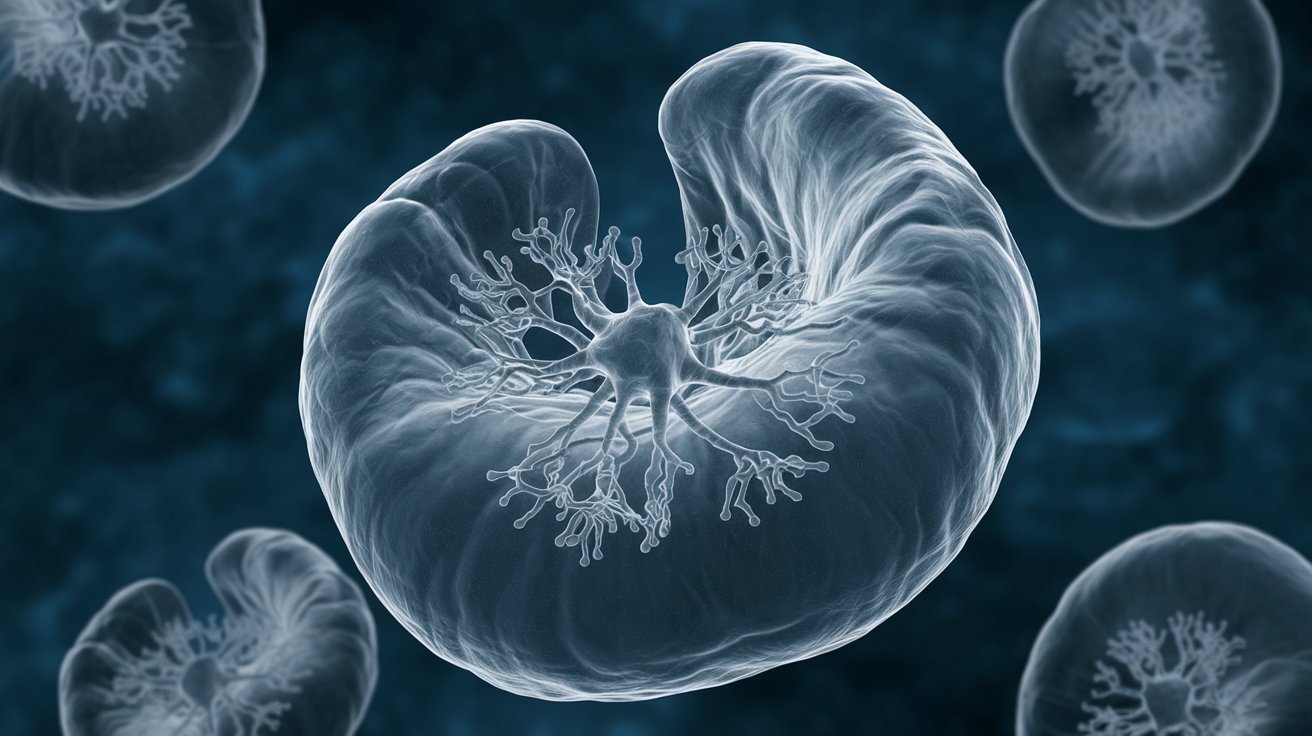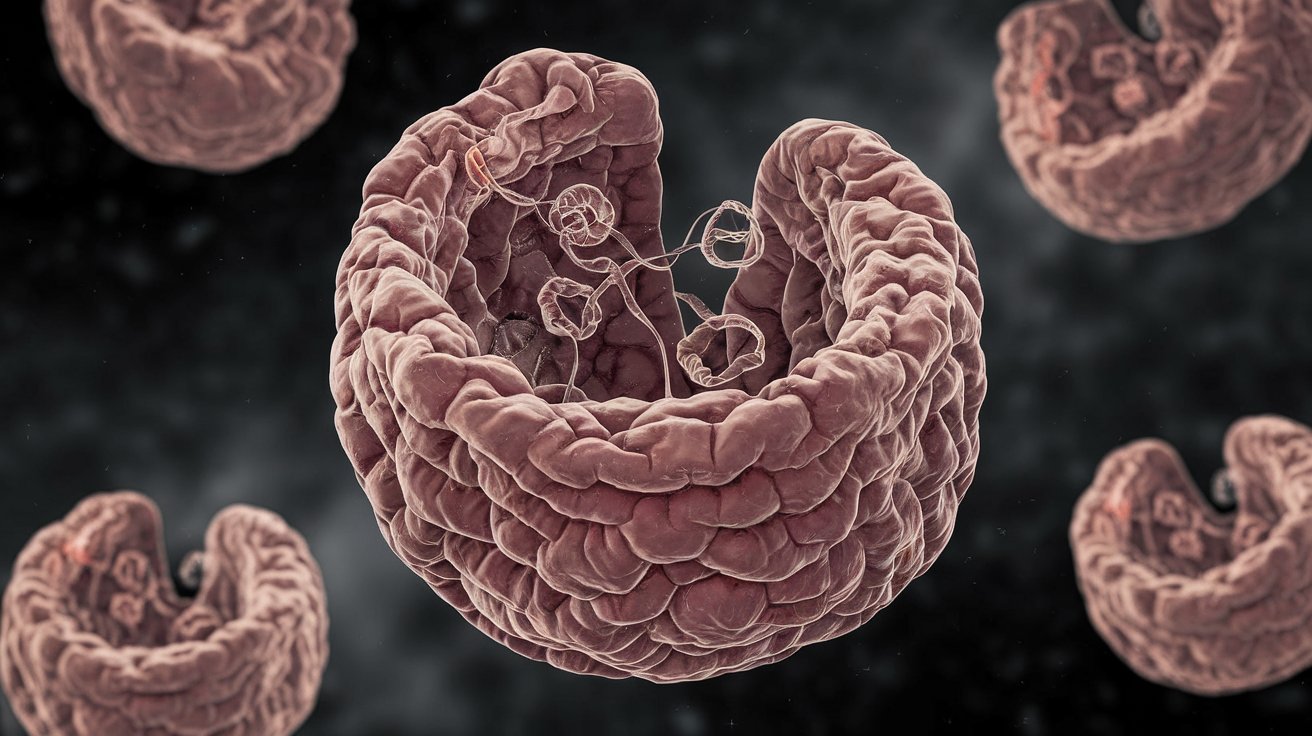
Complex 5 Mitochondrial Respiratory Chain Deficiency is a rare genetic disorder affecting the mitochondria, the powerhouse of cells. This condition disrupts energy production, leading to various symptoms that can impact multiple organs. Symptoms often include muscle weakness, developmental delays, and neurological issues. Diagnosis typically involves genetic testing, muscle biopsies, and metabolic assessments. Treatment focuses on managing symptoms and may include dietary changes, supplements, and physical therapy. Understanding this condition is crucial for those affected and their families. Let's dive into 30 intriguing facts about Complex 5 Mitochondrial Respiratory Chain Deficiency to shed light on this complex disorder.
Key Takeaways:
- Complex 5 Mitochondrial Respiratory Chain Deficiency affects energy production in cells, causing various symptoms. Treatment focuses on managing symptoms and ongoing research offers hope for future therapies.
- Living with this condition can be challenging, but support groups, educational resources, and advocacy organizations are available to help patients and families cope and improve their quality of life.
What is Complex 5 Mitochondrial Respiratory Chain Deficiency?
Complex 5 Mitochondrial Respiratory Chain Deficiency is a rare genetic disorder affecting the mitochondria, the powerhouses of cells. This condition disrupts the final step of energy production, leading to various health issues. Here are some key facts about this complex condition.
- Mitochondria are crucial for energy production. They generate ATP, the main energy currency of cells.
- Complex 5 is also known as ATP synthase. It plays a vital role in producing ATP during cellular respiration.
- Mutations in nuclear or mitochondrial DNA can cause this deficiency. These mutations impair the function of ATP synthase.
- Symptoms vary widely. They can include muscle weakness, neurological issues, and organ dysfunction.
- The condition can be inherited in different ways. It may follow autosomal recessive, autosomal dominant, or mitochondrial inheritance patterns.
Symptoms and Diagnosis
Understanding the symptoms and how this condition is diagnosed can help in managing it better. Here are some important points to consider.
- Early symptoms often include muscle weakness and fatigue. These are due to insufficient energy production.
- Neurological symptoms may develop. These can include seizures, developmental delays, and learning disabilities.
- Organ dysfunction is common. The heart, liver, and kidneys are often affected.
- Lactic acidosis is a frequent finding. This occurs when lactic acid builds up in the body.
- Diagnosis often involves genetic testing. This helps identify specific mutations causing the deficiency.
Treatment and Management
While there is no cure for Complex 5 Mitochondrial Respiratory Chain Deficiency, various treatments can help manage symptoms and improve quality of life.
- Supportive care is essential. This includes physical therapy, occupational therapy, and speech therapy.
- Nutritional support can be beneficial. A high-fat, low-carbohydrate diet may help some patients.
- Medications may be prescribed. These can include antioxidants and vitamins to support mitochondrial function.
- Regular monitoring is crucial. This helps manage complications and adjust treatments as needed.
- Experimental therapies are being researched. Gene therapy and other advanced treatments hold promise for the future.
Genetic Aspects
The genetic basis of this condition is complex and involves multiple genes. Here are some key genetic facts.
- Mutations in the ATP5A1 gene are a common cause. This gene encodes a subunit of ATP synthase.
- Other genes can also be involved. These include ATP5B, ATP5C1, and others.
- Mitochondrial DNA mutations can be maternally inherited. This means they are passed from mother to child.
- Nuclear DNA mutations follow Mendelian inheritance patterns. They can be autosomal recessive or dominant.
- Genetic counseling is recommended for affected families. This helps understand inheritance patterns and risks.
Research and Future Directions
Ongoing research aims to better understand and treat Complex 5 Mitochondrial Respiratory Chain Deficiency. Here are some exciting developments.
- Animal models are being used for research. These help scientists study the disease and test new treatments.
- Stem cell research offers potential. It may lead to new ways to repair or replace damaged mitochondria.
- Gene editing technologies are being explored. CRISPR and other tools could correct genetic mutations.
- Clinical trials are ongoing. These test new drugs and therapies for safety and effectiveness.
- International collaborations are crucial. Researchers worldwide are working together to find solutions.
Living with Complex 5 Mitochondrial Respiratory Chain Deficiency
Living with this condition can be challenging, but support and resources are available to help patients and families.
- Support groups can provide valuable assistance. Connecting with others facing similar challenges can be comforting.
- Educational resources are important. These help patients and families understand the condition and manage it effectively.
- Advocacy organizations play a key role. They raise awareness, fund research, and support affected individuals.
- Mental health support is crucial. Coping with a chronic illness can be stressful, and counseling can help.
- Adaptive technologies can improve quality of life. These include mobility aids, communication devices, and more.
Final Thoughts on Complex 5 Mitochondrial Respiratory Chain Deficiency
Complex 5 Mitochondrial Respiratory Chain Deficiency is a rare but serious condition. It affects the body's ability to produce energy, leading to various symptoms like muscle weakness, developmental delays, and organ dysfunction. Understanding the genetic basis and potential treatments is crucial for managing the condition. Early diagnosis can make a significant difference in the quality of life for those affected.
Research continues to explore new therapies and interventions. Genetic counseling can provide valuable insights for families dealing with this condition. Awareness and education are key to supporting those impacted by Complex 5 Mitochondrial Respiratory Chain Deficiency.
By staying informed and advocating for more research, we can hope for better outcomes and improved treatments in the future. Keep learning and supporting efforts to combat this challenging condition.
Frequently Asked Questions
Was this page helpful?
Our commitment to delivering trustworthy and engaging content is at the heart of what we do. Each fact on our site is contributed by real users like you, bringing a wealth of diverse insights and information. To ensure the highest standards of accuracy and reliability, our dedicated editors meticulously review each submission. This process guarantees that the facts we share are not only fascinating but also credible. Trust in our commitment to quality and authenticity as you explore and learn with us.


